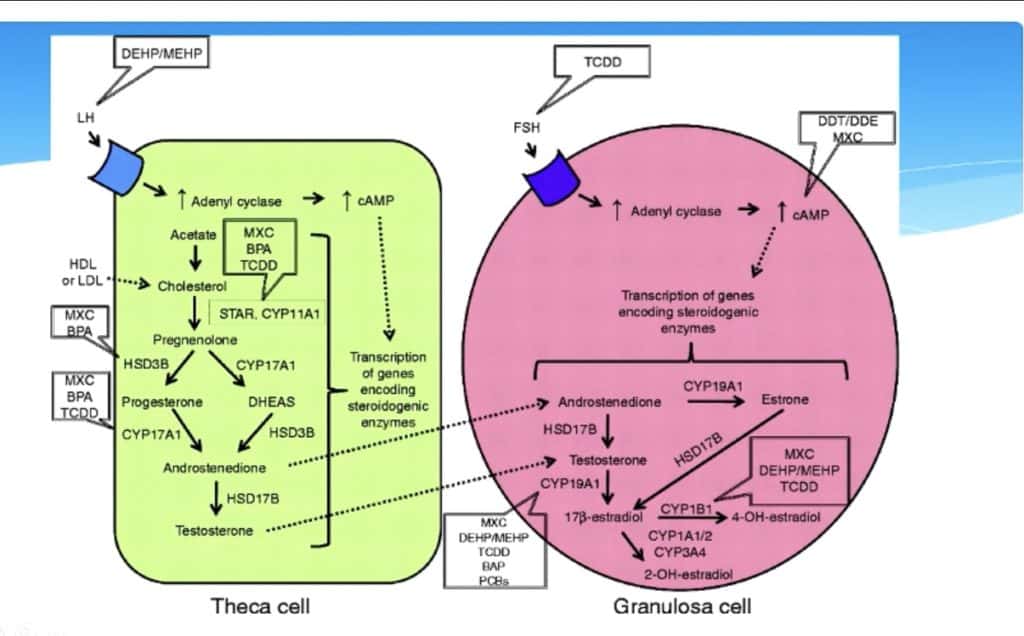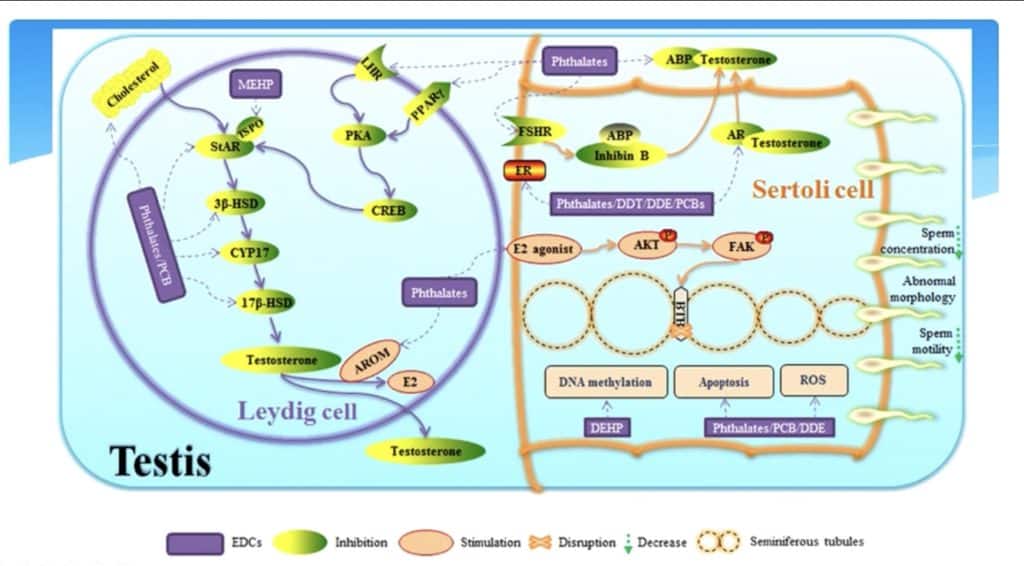
05 Apr How Toxins Affect Hormones
If you’re struggling with hormonal imbalances, you might be starting to assess your whole lifestyle. You’re thinking “what is going on with me?! Why is this happening?!” These are really good questions to ask yourself because you’ll start to uncover how much plays a role in achieving hormone balance. I want to educate you on how toxins affect hormones! While it sounds woo-woo and a little crazy, stick with me because you’ll see that it’s not crazy at all.
AND that there is so much research that backs this up! Are you ready? Let’s goooo.
How Toxins Affect Hormones
There are three different ways that toxins can affect hormones...
- They can influence hormone production, transport, utilization, and metabolism.
- They can block the receptor on the cell, so the hormone can’t use it.
- Mimic a natural hormone
From the very beginning, environmental toxins can influence hormones. And there is NOT a shortage of toxins in our body – the CDC found more than 300 chemicals in human urine, breast milk, stool, etc. This is NOT okay.
We can’t use the saying “dose makes the poison” anymore because let’s be honest, we’re freaking exposed to so much, even if it’s just “a little bit”. Let alone that most people aren’t in perfect health, which brings down our ability to detox and rid of these toxins.
Toxins + Women’s Hormones
The graph below is from a class in my graduate program that was referring to a study (I don’t have the study at hand right now), but I did screenshot this graphic because it helped me visualize how these toxins are affecting women’s hormones.

In the white box, you’ll see abbreviations to toxins (like BPA, DEHP (phthalates), etc). Both of these are cells (theca + granulosa) are found in a woman’s ovary. When we take a step back and look at hormone production, we see one thing using an enzyme to turn it into another. Example: Pregnenolone to progesterone. You can also see that the enzyme HSD3B is affected by MXC and BPA.
These toxins can downregulate/upregulate these enzymes, which leads to reduced/excess production of the hormone. Another example is when you look at testosterone in the granulosa cell, you can see how toxins can influence metabolizing testosterone into estrogen, which could cause an estrogen dominance issue.
REMEMBER: Hormones are like Goldilocks – there needs to be a balance and you can’t have too much or too little. As you can see in the graphic, there are so many ways that the toxins affect hormone production.
Some studies that might give you more motivation to steer clear of toxins:
In the Baltic coast of Sweden, women who consumed fish were 2.5x more likely to be infertile (fish in that area has PCB content 6x higher than Atlantic!). 18 infertile Canadian couples doing IVF found multiple toxins, such as PCBs, DDE, etc in more than 50% of follicular fluid samples. Women who had higher BPA levels were more likely to have implantation failure during IVF.
Toxins + Men’s Hormones
Now let’s look at a similar graphic with male hormones.

I like this graphic because at the bottom you’ll see exactly how this EDC’S (endocrine disrupting chemicals) influence the male hormones. Sex hormone production starts with cholesterol and once inside the cell, it turns it into the hormone itself. As you can see with phthalates, all of the enzymes that are a part of this process can be inhibited leaving someone with low testosterone.
Phthalates can also be seen in the graphic to influence DNA methylation, apoptosis (cell death), and reactive oxygen species. This is no coincidence that infertility is on the rise! It’s affecting not only women, but sperm quantity + quality!
I hope you understand a little bit more now of how toxins affect hormones. We need to be doing everything we can to reduce toxin exposure + supporting the body of releasing toxins safely!
In our live class that we did on this topic, I also cover how toxins affect thyroid, gut health, weight, + more! If this is a topic that you want to learn more about + understand some basic things you can do in your life to reduce toxin load, sign up to watch the replay of our FREE environmental toxins class!



